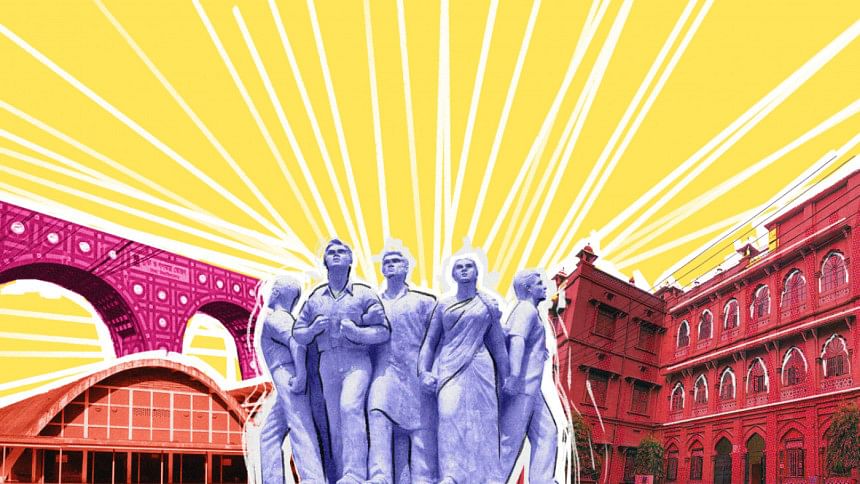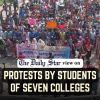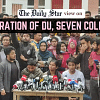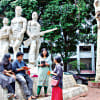DU’s faculty hiring policy is a relic from the past

Out of curiosity, take a moment to review a recent faculty recruitment advertisement from any department of Dhaka University, the oldest and most prestigious university in Bangladesh. You will likely find yourself both perplexed and disheartened, especially if you are familiar with modern academic recruitment practices of renowned universities worldwide. While leading institutions across the globe prioritise academic merit, innovation, and inclusivity, DU's recruitment process seems frozen in time, bogged down by outdated practices that stifle progress and deter qualified candidates, insisting on hard copy applications and pay orders to rigidly evaluating high school results for faculty positions. For an institution of such historical significance, this raises serious concerns about DU's commitment to academic excellence and its ability to evolve with the ever-changing demands of higher education. It is deeply disappointing to see how regressive and out-of-touch the recruitment process remains for such a venerable institution.
Here's a breakdown of the requirements and why they raise serious concerns:
Applications must be submitted on a prescribed form
In an era of online application systems and streamlined recruitment processes, requiring a "prescribed form" feels like a relic of the past. Modern institutions worldwide have embraced digital platforms that allow applicants to upload their credentials seamlessly. Why is DU clinging to such outdated practices?
The applicant must be a Bangladeshi citizen
A university, by definition, must embrace universality. Restricting applications to Bangladeshi citizens goes against the global standards of academia. World-class universities attract the best minds regardless of nationality. If DU aspires to compete on the global stage, it must abandon parochial policies like this one.
Minimum GPA of 4.25 in SSC and HSC
This requirement is nothing short of laughable. In what country does a university consider high school (SSC and HSC) exam results to hire professors? Such criteria might make sense for certain vocational positions but not academic faculty roles. A person's capabilities as a researcher or educator should not be judged by how they performed in their teenage years. It is akin to asking a seasoned pilot about their high school physics grade.
Minimum GPA of 3.5 in undergrad, master's, preference for PhD holders
Generally, a PhD is the minimum qualification for university faculty. Yet, DU's job posts treat having a PhD and publications as a bonus. This approach undermines the value of advanced research and perpetuates mediocrity. Shouldn't the focus be on the quality of a candidate's PhD, research contributions, and teaching potential?
A pay order of Tk 750
Why is the university demanding money from applicants before even considering them for a position? Are they offering training or benefits upfront? Globally, universities invest in attracting the best candidates, not the other way around. This requirement is not only absurd but also exploitative, especially considering the low salaries offered to faculty.
Eight sets of attested copies of all documents
Why is it necessary to submit a hard copy of the application to the university? Are your board members unable to operate computers or access the internet? Or can they not read without paper? Take a moment to research whether any university in the developed world conducts faculty recruitment in this manner. The insistence on attested copies—and eight sets of them—is emblematic of a bureaucracy that refuses to evolve. Most of the world has moved past attestation, trusting digital verification systems instead. The practice of attestation, rooted in colonial distrust, has no place in modern academia.
A contradictory policy on results
The current admission requirements for the science unit at DU state that students from the science stream must have a combined GPA of 8 in their SSC and HSC (or equivalent) exams, including the fourth subject, with a minimum GPA of 3.5 in each. For example, a student with a GPA of 4.5 in SSC and 3.5 in HSC, or vice versa, qualifies to apply and has a chance of gaining admission. However, this directly contradicts the minimum eligibility criteria for a faculty position in the science unit. A student who meets the admission criteria, excels in their studies, and graduates as the top student in their department—or even the entire faculty—would still be ineligible to apply for a teaching position at DU due to their SSC and HSC results. Such a student might qualify to become a professor at prestigious institutions like MIT or Harvard, but would not meet the criteria to teach at DU. This highlights a glaring inconsistency and the urgent need for a rational, merit-based reform in the educational system.
The salary problem
After all these hurdles, the starting salary for a lecturer is capped at Tk 53,000. Meanwhile a PhD student in India receives a fellowship equivalent to Tk 60,000 or more, along with studio housing if they are married. This disparity is not just embarrassing but indicative of a systemic failure to prioritise education. If the teaching profession is not made attractive and competitive, how can we expect to recruit capable individuals?
The diversity problem
One unwritten but widely practised rule by our universities is that they tend to recruit their own graduates. Universities worldwide prioritise diversity and fresh perspectives in their academic communities, which is why they generally avoid recruiting their own undergraduates or graduates as faculty. This practice, known as "academic inbreeding," is discouraged to promote intellectual diversity, foster the exchange of ideas, and maintain a dynamic and innovative academic environment. Exceptions are made only in rare cases where candidates demonstrate exceptional brilliance or have gained significant experience and recognition at other reputable institutions, proving their merit through distinguished contributions to their field. In stark contrast, DU—and many other universities in Bangladesh—frequently recruit their own graduates as faculty members. This practice deviates from the proven strategies adopted by renowned global universities and hinders the potential for growth and innovation. It is well-established that no university can significantly improve its global ranking or reputation without embracing the best practices followed by top institutions worldwide. To rise in global stature, Bangladeshi universities must break away from outdated norms and adopt policies that align with international standards of academic excellence.
Education is the cornerstone of a nation's progress and the root of many of Bangladesh's problems lies in the neglect of this sector. DU's outdated recruitment policies are a microcosm of the larger issues plaguing our education system. Unless radical changes are made to attract talent and prioritise merit, the future of this nation remains bleak. It is high time we demanded better for our educators, our students, and our country.
Dr Kamrul Hassan Mamun is professor at the Department of Physics in the University of Dhaka.
Views expressed in this article are the author's own.
Follow The Daily Star Opinion on Facebook for the latest opinions, commentaries and analyses by experts and professionals. To contribute your article or letter to The Daily Star Opinion, see our guidelines for submission.

 For all latest news, follow The Daily Star's Google News channel.
For all latest news, follow The Daily Star's Google News channel. 











Comments